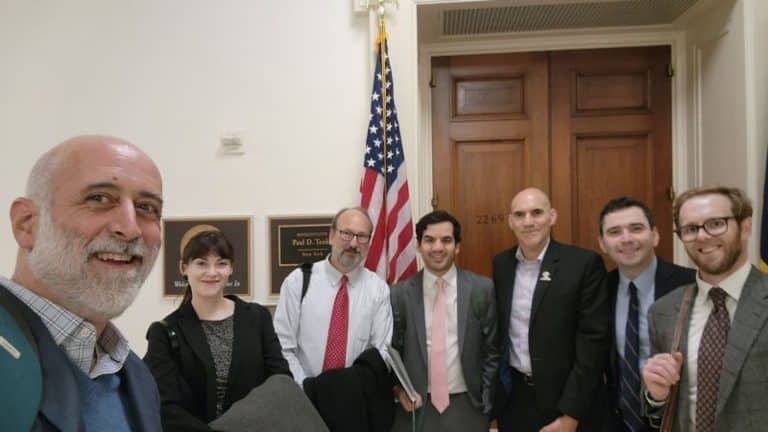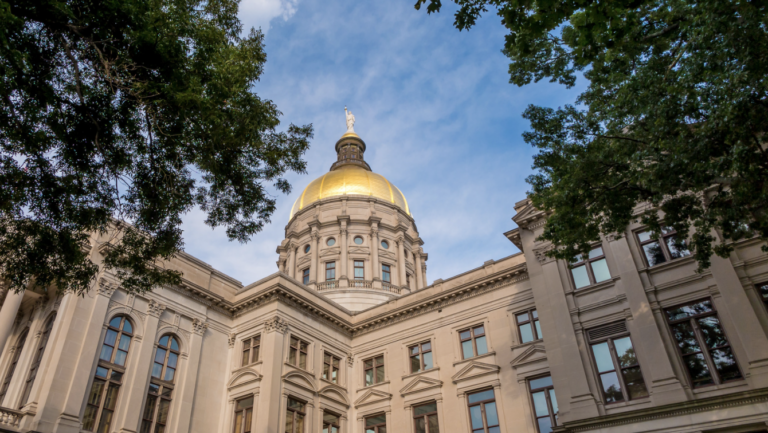If a multi-billion dollar monopoly utility messes-up and creates a pollution mess that costs over $200 million to clean up, should its customers have to pick up the tab? Voice your opinions to this question to the Florida Public Service Commission by this week!
That’s the question before the Florida Public Service Commission this week as it considers Florida Power and Light’s (FPL) request to stick Florida families and businesses with the costs for cleaning up contamination that occurred on its watch at its Turkey Point plant in south Florida. FPL customers, here’s what you need to know.

The company operates a ten square mile cooling canal system for its aging Turkey Point plant 3 & 4 reactors. FPL is the only utility in the country to use this system for cooling water for power generation. The miles of canals are unlined, and due to the porous geology of south Florida, water from canals has leached underground to form a plume of hyper-saline and contaminated water spreading westward in the Biscayne Aquifer towards drinking water wells and eastward into Biscayne National Park. The Biscayne Aquifer is the sole drinking water source for Miami-Dade County and the Keys.
Last year, FPL entered into a “consent order” with the FL Dept. of Environmental Protection for a plan to clean up it’s mess – after FPL violated its permit by contaminating the drinking water aquifer. An expert says that this plan won’t even solve the problem (more on that later). Southern Alliance for Clean Energy (SACE) filed a Clean Water Act lawsuit last year asking a federal judge to find that FPL violated its environmental discharge permit and require a remedy that stops the source of the pollution. A hearing is scheduled for next year.
Customers take it on the chin 
FPL has filed a request with the Florida Public Service Commission to recover more than $100 million from its customers for alleged clean-up expenses and investments that it has already racked up to try to clean up its mess. It will seek to ultimately recover over $200 million dollars from families and businesses in its territory. FPL earned record profits last year – taking home $ 1.7 Billion from electricity sales to customers. Let that sink in for a moment.
1.7 Billion from electricity sales to customers. Let that sink in for a moment.
A Commission hearing in the Environmental Cost Recovery Docket is scheduled for October 25th in Tallahassee to determine whether these costs were “prudently” incurred. If not, FPL will have to cover the costs to clean up its own mess.
A history of negligence at Turkey Point
Expert testimony, filed in the docket by the Office of Public Counsel, establishes a historical trail of FPL negligence and concludes that the Company’s clean-up plan – the one for which it wants customers to pay – won’t achieve its goal. FPL knew, or should have known, about the spreading pollution since 1978 – but failed to act on it for decades. Is FPL’s inaction in the face of a spreading pollution prudent? The expert specifically found:
- There are data & studies from 1978 that showed impacts to groundwater from the cooling canals;
- FPL should have known by 1978, but certainly by 1992, that its cooling canals were creating a growing underground contamination plume;
- FPL appears to claim that 2013 is the first time it discovered the plume was expanding – (FPL sat on its hands for decades); and
- FPL and its consultants either ignored or turned a blind eye to data showing a growing underground contamination plume problem.
The evidence of FPL’s failure to address the pollution mess over decades at Turkey Point is compelling, but FPL has oversized influence in Tallahassee and disputes the claims. That’s why Florida Public Service Commission needs to hear from FPL customers. Expect the legal fireworks to fly at the October 25th Commission hearing. SACE, along with other consumer parties, will be there challenging FPL’s attempt to loot customers.
After all, families and businesses served by FPL shouldn’t have to pay for the Company’s mistakes. The Commission shouldn’t reward failure. FPL should pay to clean up its own mess. The Commission will render a final decision on December 12th.
FPL customers, take action here. We’ll keep you updated as this issue plays out!


